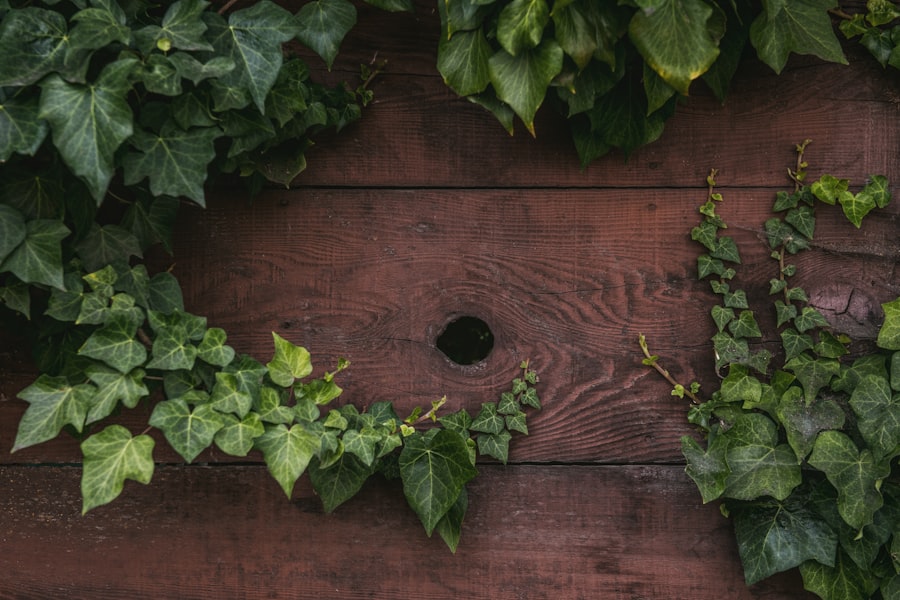Keeping a single goat with chickens can be a beneficial arrangement for both species and their owners. Goats and chickens often develop a symbiotic relationship, providing companionship and mutual benefits. Goats are primarily kept for milk and meat production, while chickens are valued for their eggs and ability to control pests.
When housed together, these animals can create a harmonious environment that enhances their overall well-being. However, it is crucial to consider the specific requirements of both goats and chickens to ensure their health, safety, and comfort. This includes providing appropriate housing, nutrition, and care for each species.
Proper management of their social dynamics and potential challenges is also essential for a successful cohabitation. This article will examine the advantages of keeping a goat with chickens, discuss housing and feeding considerations, address health and safety concerns, explore social dynamics between the species, and provide solutions for potential challenges that may arise when keeping these animals together.
Table of Contents
- 1 The Benefits of Keeping a Goat with Chickens
- 2 Considerations for Housing and Feeding a Goat with Chickens
- 3 Health and Safety Concerns when Keeping a Goat with Chickens
- 4 Managing the Social Dynamics between a Goat and Chickens
- 5 Potential Challenges and Solutions for Keeping a Goat with Chickens
- 6 Conclusion and Final Tips for Keeping a Goat with Chickens
- 7 FAQs
- 7.1 Can I keep a single goat with chickens?
- 7.2 What are the considerations for keeping a goat with chickens?
- 7.3 What are the benefits of keeping a goat with chickens?
- 7.4 Are there any potential drawbacks to keeping a goat with chickens?
- 7.5 How can I ensure the safety of the chickens when keeping a goat with them?
Key Takeaways
- Keeping a single goat with chickens can be a beneficial and rewarding experience for both animals and their owners.
- Benefits of keeping a goat with chickens include natural pest control, companionship, and efficient use of space and resources.
- When housing and feeding a goat with chickens, it’s important to provide separate areas for each species and to ensure the goat’s dietary needs are met.
- Health and safety concerns when keeping a goat with chickens include potential for disease transmission and the need for secure fencing to prevent accidents.
- Managing the social dynamics between a goat and chickens involves observing their interactions and providing opportunities for positive bonding experiences.
- Potential challenges of keeping a goat with chickens include territorial behavior and competition for resources, which can be addressed through careful management and environmental enrichment.
- In conclusion, keeping a goat with chickens can be a fulfilling experience with proper planning, attention to their individual needs, and proactive management of their interactions.
The Benefits of Keeping a Goat with Chickens
Companionship and Pest Control
Goats are natural grazers and can help keep the grass and weeds in check, providing chickens with a cleaner and more open space to forage for insects and other food sources. In return, chickens can help keep pests at bay by eating insects and parasites that may bother the goats. Additionally, goats and chickens can provide each other with companionship, as they are social animals that thrive in the company of others.
Different Feeding Habits
Goats and chickens have different feeding habits, which means they are not in direct competition for food resources. While goats prefer to graze on grass and shrubs, chickens are omnivores that will eat a variety of foods, including grains, seeds, insects, and kitchen scraps. This means that they can coexist without depleting each other’s food sources.
Economic Benefits
Keeping a goat with chickens can also have economic benefits. Goats are known for their milk and meat production, while chickens are valued for their eggs. By keeping both species together, you can diversify your farm’s products and potentially increase your income. Additionally, goats produce manure that can be used to fertilize the soil, while chickens produce nitrogen-rich droppings that can also be used as fertilizer. This can help improve the fertility of your soil and benefit your garden or crops.
Low-Maintenance and Cost-Effective
Furthermore, both goats and chickens are relatively low-maintenance animals that require minimal inputs compared to other livestock. They are efficient converters of food into valuable products such as milk, meat, and eggs, making them a cost-effective addition to a small farm or homestead. Overall, keeping a goat with chickens can provide numerous benefits in terms of pest control, companionship, diversification of products, and economic value.
Considerations for Housing and Feeding a Goat with Chickens

When considering housing and feeding a goat with chickens, it is important to take into account the specific needs of both species. Goats require shelter from the elements, such as rain and extreme temperatures, as well as protection from predators. They also need access to fresh water at all times and a balanced diet that includes hay or pasture, grains, minerals, and occasional treats such as fruits and vegetables.
Additionally, goats need space to roam and graze, as they are natural browsers that prefer to eat a variety of plants. On the other hand, chickens require a secure coop to roost at night and lay their eggs, as well as protection from predators such as foxes, raccoons, and birds of prey. They also need access to fresh water at all times and a balanced diet that includes grains, seeds, insects, and kitchen scraps.
When housing a goat with chickens, it is important to provide separate areas for each species to meet their specific needs. For example, you can provide a separate shelter for the goat and a secure coop for the chickens. This will help prevent competition for space and resources, as well as reduce the risk of injury or disease transmission between the two species.
Additionally, you can provide separate feeding areas for the goat and chickens to ensure that they have access to their specific dietary requirements without interference from each other. This can help prevent overconsumption of food by one species at the expense of the other. Overall, careful consideration of housing and feeding arrangements is essential to ensure the well-being and safety of both goats and chickens when kept together.
In terms of feeding a goat with chickens, it is important to provide a balanced diet for both species that meets their nutritional requirements. For example, goats require roughage such as hay or pasture to maintain their digestive health, while chickens require a diet high in protein to support egg production. You can provide separate feeders for each species to ensure that they have access to their specific dietary needs without competition or wastage.
Additionally, you can supplement their diets with kitchen scraps or garden surplus to provide additional nutrients and reduce food waste. It is important to monitor their feeding habits and adjust their diets as needed based on their health and performance. Overall, providing appropriate housing and feeding arrangements for a goat with chickens is essential to ensure their well-being and productivity.
Health and Safety Concerns when Keeping a Goat with Chickens
When keeping a goat with chickens, there are several health and safety concerns that need to be addressed to ensure the well-being of both species. One of the main concerns is disease transmission between goats and chickens. While goats are susceptible to certain diseases such as caprine arthritis encephalitis (CAE) and caseous lymphadenitis (CL), chickens are susceptible to diseases such as coccidiosis and avian influenza.
It is important to implement biosecurity measures to prevent disease transmission between the two species. This can include quarantine procedures for new animals, regular health checks by a veterinarian, vaccination programs where applicable, and proper sanitation practices in their living areas. Another health concern when keeping a goat with chickens is parasite control.
Both goats and chickens are susceptible to internal parasites such as worms, which can negatively impact their health and productivity if left untreated. It is important to implement parasite control programs for both species based on regular fecal testing and targeted deworming treatments. Additionally, providing clean living areas with good drainage and proper ventilation can help reduce the risk of parasite infestations.
In terms of safety concerns when keeping a goat with chickens, it is important to consider their behavior and potential interactions. Goats are known for their curiosity and tendency to nibble on objects, which can pose a risk to chickens if not properly managed. For example, goats may inadvertently ingest small objects that could cause digestive issues or injury if left in their living areas.
Additionally, goats have horns that can potentially injure chickens if they engage in aggressive behavior or playfulness. It is important to provide separate living areas for each species to minimize the risk of injury or stress caused by their interactions. Overall, addressing health and safety concerns when keeping a goat with chickens is essential to ensure the well-being of both species.
Implementing biosecurity measures to prevent disease transmission, parasite control programs based on regular fecal testing, targeted deworming treatments, providing clean living areas with good drainage and proper ventilation can help reduce the risk of health issues in both goats and chickens.
Managing the social dynamics between a goat and chickens is an important aspect of keeping them together harmoniously. Both goats and chickens are social animals that thrive in the company of others but have different social structures and communication methods. Understanding their natural behaviors can help create an environment where they can coexist peacefully.
Goats are herd animals that establish social hierarchies within their group through dominance displays such as head-butting or posturing. They may also establish bonds with specific individuals within their herd based on mutual grooming or resting together. When kept with chickens, goats may exhibit similar behaviors towards them as they would towards other goats.
It is important to monitor their interactions to ensure that no aggressive behavior towards the chickens occurs. Chickens also have their own social dynamics within their flock based on pecking order and communication through vocalizations and body language. They establish hierarchies through pecking order where dominant individuals assert their authority over subordinate ones through pecking or chasing.
When introduced to a goat, chickens may initially be wary of them due to their size but will eventually adapt to their presence. To manage the social dynamics between a goat and chickens, it is important to provide enough space for both species to establish their territories without feeling crowded or threatened by each other. Providing separate living areas for each species can help reduce competition for space and resources while allowing them to interact safely when supervised.
Additionally, providing enrichment activities such as toys or structures for climbing or perching can help alleviate boredom or stress in both goats and chickens while promoting positive interactions between them. Overall, managing the social dynamics between a goat and chickens requires understanding their natural behaviors and providing an environment where they can coexist peacefully without feeling threatened or stressed by each other’s presence.
Potential Challenges and Solutions for Keeping a Goat with Chickens

Dietary Needs and Feeding Arrangements
While keeping goats with chickens can be beneficial, managing their dietary needs without causing competition or wastage of food resources can be a challenge. Goats require roughage such as hay or pasture, while chickens require grains, seeds, insects, and kitchen scraps. To address this, providing separate feeding areas for each species can help ensure they have access to their specific dietary requirements without interference from each other.
Managing Interactions and Minimizing Stress
Another potential challenge is managing the interactions between goats and chickens without causing stress or injury to either species. Goats may exhibit curious behavior towards chickens, which could lead to accidental ingestion of small objects or aggressive behavior if not properly managed. Providing separate living areas for each species can help minimize the risk of injury or stress caused by their interactions, while allowing them to interact safely when supervised.
Parasite Control and Health Management
Managing parasite control programs for both goats and chickens can be challenging due to differences in their susceptibility to internal parasites such as worms. Implementing regular fecal testing for both species, based on targeted deworming treatments, can help reduce the risk of parasite infestations while promoting their overall health.
Overall Considerations for Successful Co-Habitation
Overall, addressing potential challenges when keeping a goat with chickens requires careful consideration of their specific needs and behaviors, while providing appropriate housing arrangements, feeding areas, enrichment activities, and parasite control programs based on regular fecal testing and targeted deworming treatments.
Conclusion and Final Tips for Keeping a Goat with Chickens
In conclusion, keeping a goat with chickens can be a rewarding experience that provides numerous benefits in terms of pest control companionship diversification of products economic value on a small farm or homestead However it is important to consider the specific needs of both goats and chickens when housing feeding them together To ensure their well-being safety addressing health safety concerns managing social dynamics potential challenges requires careful consideration of their natural behaviors providing appropriate housing arrangements feeding areas enrichment activities parasite control programs based on regular fecal testing targeted deworming treatments By understanding their specific needs behaviors creating an environment where they can coexist peacefully without feeling threatened or stressed by each other’s presence you can create a harmonious ecosystem where goats chickens thrive together If you’re considering keeping a goat with chickens here are some final tips to keep in mind Provide separate living areas for each species to meet their specific needs Provide separate feeding areas for each species to ensure they have access to their specific dietary requirements without interference from each other Monitor their interactions when introduced supervise them until they adapt Provide enrichment activities such as toys structures climbing perching alleviate boredom stress promote positive interactions between them Implement biosecurity measures prevent disease transmission between goats chickens regular health checks vaccination programs where applicable Implement parasite control programs based on regular fecal testing targeted deworming treatments provide clean living areas good drainage proper ventilation reduce risk health issues Overall keeping a goat with chickens requires careful planning management ensure their well-being safety while creating an environment where they can coexist peacefully thrive together
If you’re considering keeping a single goat with chickens, you may also be interested in learning about the best chicken coop and run plans to ensure a safe and comfortable living space for your poultry. Check out this article for helpful tips and ideas on creating the perfect coop for your chickens.
FAQs
Can I keep a single goat with chickens?
Yes, it is possible to keep a single goat with chickens. However, there are some considerations to keep in mind to ensure the well-being of both the goat and the chickens.
What are the considerations for keeping a goat with chickens?
It is important to provide adequate space for both the goat and the chickens, as well as separate feeding and watering areas. Additionally, the goat should be properly socialized and trained to coexist peacefully with the chickens.
What are the benefits of keeping a goat with chickens?
Keeping a goat with chickens can provide companionship for both animals and can also help with weed control in the chicken’s enclosure. The goat’s manure can also be beneficial for the soil in the chicken’s area.
Are there any potential drawbacks to keeping a goat with chickens?
One potential drawback is that the goat may consume the chickens’ feed if not properly managed. Additionally, the goat’s hooves can be damaging to the chicken’s enclosure if not properly maintained.
How can I ensure the safety of the chickens when keeping a goat with them?
It is important to supervise the interactions between the goat and the chickens initially to ensure that the goat does not exhibit aggressive behavior towards the chickens. Providing separate shelter areas for the chickens can also help ensure their safety.
Meet Walter, the feathered-friend fanatic of Florida! Nestled in the sunshine state, Walter struts through life with his feathered companions, clucking his way to happiness. With a coop that’s fancier than a five-star hotel, he’s the Don Juan of the chicken world. When he’s not teaching his hens to do the cha-cha, you’ll find him in a heated debate with his prized rooster, Sir Clucks-a-Lot. Walter’s poultry passion is no yolk; he’s the sunny-side-up guy you never knew you needed in your flock of friends!







